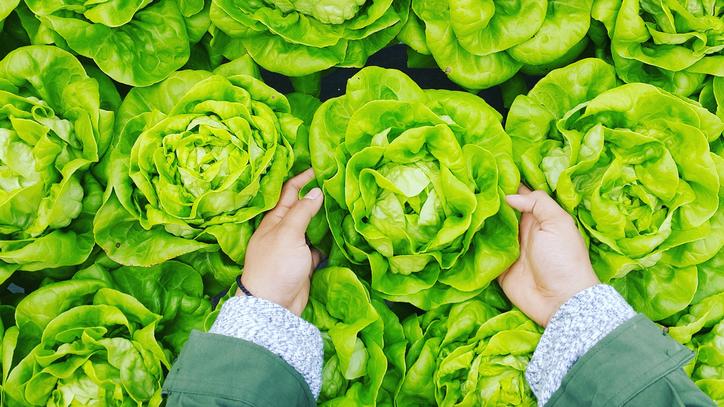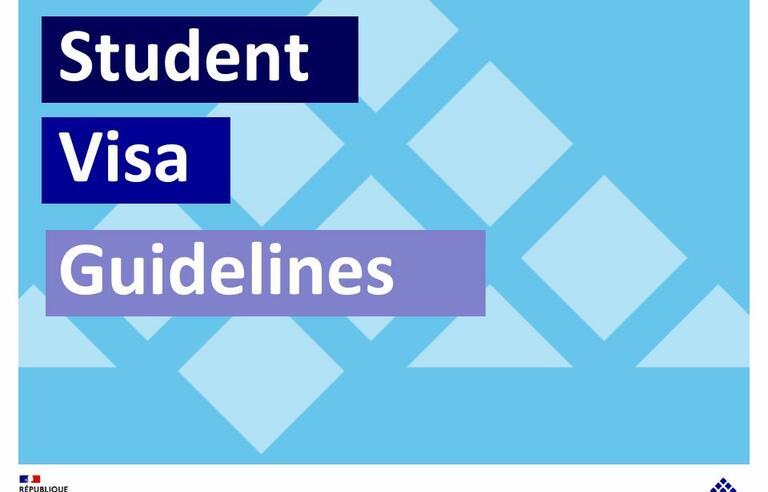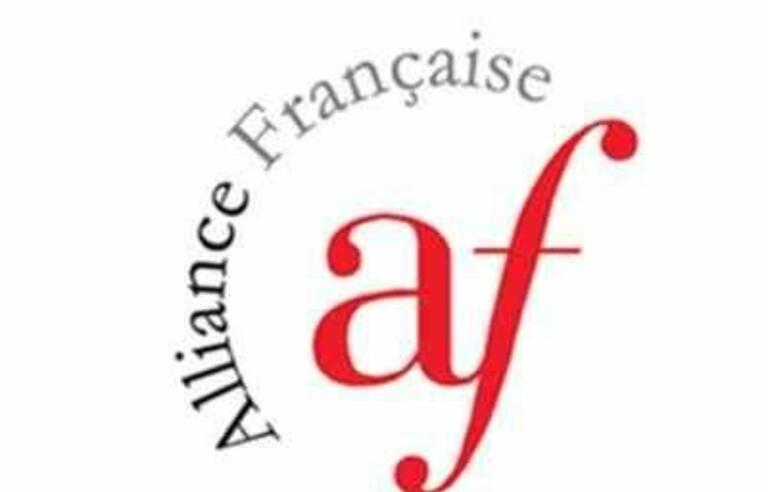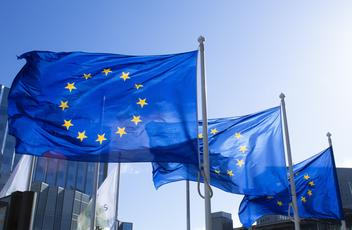Sustainable Food Systems : EXPLORING MASTER'S PROGRAMS IN FRANCE

In the Exploring Master's in France Series, Campus France USA showcases opportunities for U.S. students to pursue graduate degrees in France within five key disciplines, including Sustainable Food Systems
Studying the future of global food systems, in France
Food systems are at the heart of progress towards the UN Sustainable Development Goals (SDGs), and sustainability of foods systems correlates strongly with human development, gender equality, and economic stability. What we eat and how it is produced are key contributors to climate impact, and population health trends.
The UN estimates that about one third of all greenhouse gas emissions are related to agriculture and food systems. Addressing questions of access to high-quality, nutritious food that contributes to biodiversity and healthy soils is paramount to supporting health and well-being of a growing population. Addressing food waste and supply chain issues is imperative for the fight against hunger. Understanding fisheries and coastal economies is critical for healthy oceans of the future and to preserve life below water.
A focus on foods systems is key to global sustainability efforts
Food systems are at the heart of progress towards the UN Sustainable Development Goals (SDGs), and sustainability of foods systems correlates strongly with human development, gender equality, and economic stability. What we eat and how it is produced are key contributors to climate impact, and population health trends.
The UN estimates that about one third of all greenhouse gas emissions are related to agriculture and food systems. Addressing questions of access to high-quality, nutritious food that contributes to biodiversity and healthy soils is paramount to supporting health and well-being of a growing population. Addressing food waste and supply chain issues is imperative for the fight against hunger. Understanding fisheries and coastal economies is critical for healthy oceans of the future and to preserve life below water.
France is a leader in sustainable food systems
France has long been recognized for its strong gastronomic tradition, excellence in culinary training, and contributions to the evolution of cuisines around the world. This reputation has been built on a foundation of high-quality, diverse local products from across France, which draw on regional expertise, ecosystems, and terroirs.
Beyond a rich diversity of regional agricultural products and local producer expertise, France also has built a firm tradition of sustainability in agricultural practices and food policy. Since the 1960’s, France has been a pioneer in Europe in developing widespread sustainable agriculture practices, including being in 1980 being the first country to legally recognize and promote organic farming practices, implementing innovative public policy to tackle food waste across production and supply chains, and advancing public communications on nutrition indicators and food labeling.
France’s Ministry of the Ecological Transition and Territorial Cohesion and Ministry of the Energy Transition work together to advance national collective goals on sustainable agriculture and food systems.
These goals aim to advance:
-
Support for food policy (to fight food waste, support local producers, provide food education, and support access to high quality food as a pillar of social justice)
-
Promotion of sustainable food systems
-
Labeling of environmental impact for food products
-
The fight against food waste
-
Support for organic agriculture
Studying sustainable food systems in France
Within Europe and across the world, policymakers, engineers, agricultural planners, and entrepreneurs alike look towards France as a hub for good practices in sustainable food systems.
Studying sustainable food systems may mean learning about the chemistry of soil health, public policy on food waste, fisheries management, land use, or regional food identity.
Graduate-level study in sustainable food systems will open a wide variety of professional opportunities across the sector and studying in France may allow students to leverage proximity to international organizations and European policymakers at the frontiers of the field.
In French higher education, the network of institutions with the Label DD&RS – Développement Durable et Responsabilité Sociétale is ever expanding. This Label provides a common road map for French higher education institutions to align themselves across subjects with sustainable development and social responsibility objectives and provides institutions who meet rigorous criteria with a Label, or Certification. Prospective students can use this network as a reference if they are seeking schools that integrate sustainability topics across disciplines and in operations. The Label DD&RS is an initiative of the Conférence des Grandes Écoles (CGE), la Conférence des Présidents d’Université (CPU), the French Ministry for Sustainable Development, the French Ministry for Higher Education, and the Réseau des Etudiants pour une société écologique et solidaire (RESES).
French higher education offers many opportunities to train next generation agricultural experts and food policymakers and shape the sustainable food systems of the future. We’ve selected a few examples of master's degrees offered across French higher education in fields related to food sustainability, but this is just a small sampling of the offerings available.
Programs to consider
- Graduate programs at AgroParisTech
- A leading institution both in France and abroad and a key stakeholder in the world of higher education and research, AgroParisTech is committed to offering solutions to the central challenges posed by the living world—fostering knowledge and understanding to enable humanity to better safeguard our ecosystems, feeding populations while preserving natural resources, and sustainably managing the environment. AgroParisTech sets the course for a sustainable world both today and in the future, in line with the UN’s Sustainable Development Goals.
- A leading institution both in France and abroad and a key stakeholder in the world of higher education and research, AgroParisTech is committed to offering solutions to the central challenges posed by the living world—fostering knowledge and understanding to enable humanity to better safeguard our ecosystems, feeding populations while preserving natural resources, and sustainably managing the environment. AgroParisTech sets the course for a sustainable world both today and in the future, in line with the UN’s Sustainable Development Goals.
- European joint MSc degree: Sustainable Food Systems
- This joint European MSc is offered by ISARA (Lyon, France) and the Università Cattolica del Sacro Cuore (Italy, Piacenza and Cremona). This European double degree program is a two-year international master’s degree aiming at educating future academics and managers for food companies and organizations to manage food processing and other food production related activities in a sustainable way. The program is taught in English, tuition fees are $5,000 per year, and scholarships are available.
- Erasmus Mundus Joint Master’s degree, MSc in Food Identity
- Offered by a collaboration of universities in France, Romania, Greece, and Italy, this 2-year master's program includes time in all four countries and a 6-month professional internship. This program trains future experts in the agri-food sector -with an international vision of culture, regulation, market analysis and competences- in food processing, authentication, sensory analysis, quality control, marketing strategy and entrepreneurship. The joint MSc program is designed to develop both technical and commercial skills through a curriculum focusing on local and traditional food products.
The program is taught in English, but students are required to take French language courses throughout the program. No French proficiency is required for beginning students.
- Offered by a collaboration of universities in France, Romania, Greece, and Italy, this 2-year master's program includes time in all four countries and a 6-month professional internship. This program trains future experts in the agri-food sector -with an international vision of culture, regulation, market analysis and competences- in food processing, authentication, sensory analysis, quality control, marketing strategy and entrepreneurship. The joint MSc program is designed to develop both technical and commercial skills through a curriculum focusing on local and traditional food products.
-
Also see the Campus France USA degree catalogs for broader research on degree programs in French institutions that are open for international candidates.

























